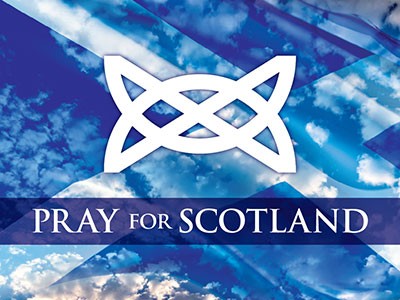Syria: peace-making in Russia
15 Dec 2017As 2017 closes, Syrian warring parties are moving towards reconciliation - but America is not among them. IS is all but defeated: the Syrian army and its allies are closing in on the few remaining pockets occupied by other extremists. Donald Trump may have hinted at changes, but he’s treading the same path as Obama on Syria. Determined to oust Syria’s President Assad as a means to weaken Iran and re-establish American regional control, Barack Obama gambled on two pathways to this goal: 1) military strategy to snatch control over Syria from the regime; 2) UN/American mediation in Geneva to remove Assad. Washington lost its military venture when the Russian air force entered the battle; next it resuscitated a limp Geneva peace process for political settlement without Assad. It failed. But a fresh process is being established in Sochi, not Geneva, with Iranians, Russians and Turks carving out ceasefire zones and negotiating peace.
Global: coping with disasters
15 Dec 2017In Bali huge plumes of smoke continue to stretch 1,500m above Mount Agung as eruptions and low frequency earthquakes continue. The eruption threat remains at its highest level but it is not known when a major eruption will occur; so 70,000+ evacuees remain banished from their homes. In California wildfires have destroyed 1,000 structures to date, and six major fires still roar. Tens of thousands of people have been forced to flee their homes. Smoke continues to obscure the sun in both places. Hundreds of people were forced to leave their homes in the Solomon Islands after several rivers overflowed on 5 December. After torrential rainfall on 1 December in Albania, 5,000 households suffered flood damage and 600 families are still homeless. In all of these instances people comfort each other after losing livestock, livelihoods, homes and possessions. Many are still living in fear. See
Palestine: a call to recognise East Jerusalem
15 Dec 2017Leaders of over fifty countries condemned US president Donald Trump’s recognition of Jerusalem as the capital of Israel and called on the world to respond by recognising East Jerusalem as the capital of Palestine at an Istanbul summit. They added, ‘We invite the Trump administration to reconsider its unlawful decision that might trigger chaos in the region, and to rescind its mistaken step’. Turkish President Erdogan also said, ‘It is out of the question for a biased US to mediate between Israel and Palestine; that period is over. We need to discuss who will be a mediator from now on.’ There have been riots and protests by Palestinians ever since Trump’s decision. On 14 December undercover police officers arrested rioters outside Ramallah. See
Iran: Boris Johnson's visit
15 Dec 2017Nazanin Zaghari-Ratcliffe’s court case, at which she was expected to have her jail sentence extended, was postponed following the Foreign Secretary’s visit to Iran. Boris Johnson has said he held ‘worthwhile’ meetings in Tehran over the case of the jailed British-Iranian woman, but warned that he did not wish ‘to raise false hopes’ for her release. He believed his messages had been understood by senior Iranian figures, but admitted it was too early to be confident of the outcome, casting doubt on her family’s hopes that she might be released in time for Christmas.
In October Philippines president Rodrigo Duterte declared Marawi city liberated from the terrorists led by Malaysian Mahmud bin Ahmad. Marawi is now battle-scarred and broken, after two months of fierce fighting destroyed half of the homes and killed more than 1,000 people. Countless Muslims like Alayssa Macabaya were forced to flee after their homes were destroyed. Now, he lives 2 hours away in the predominantly Christian city of Cagayan de Oro. He and other Muslim refugees receive food, shelter, and basic necessities from the Christians who live there. ‘We are not driving them from the city. They can stay as long as they want,’ said Mayor Oscar Moreno. ‘Who knows, maybe some will settle down here.’ However, not everyone is happy about the mayor's decision. The city's social welfare officer said that he has received numerous security concerns from residents.
2017 THE YEAR OF THE EXTRAORDINARY
13 Dec 2017In October 2016 at our Trumpet call in the International Convention Centre Birmingham, we announced “Be prepared for the extraordinary.” Little did we know how extraordinary it would be.
Extraordinary shaking
Who expected Donald Trump in October 2016? He is the ultimate marmite President, passionately loved and loathed. Who expected Saudi Arabia to arrest hundreds of princes and senior officials and say they wanted to be more open to other religions? We knew Russia and China would be powerful but in the past twelve months China in particular has equalled the USA as a global super power. France has a new, energetic President. The Middle East struggles through more turmoil with the recent Muslim on Muslim terror attack at a Sinai mosque, ISIS being largely driven out of Iraq and Syria and the increased move to a Muslim dictatorship in Turkey.
The UK has had a traumatic 2017. Theresa May will look on 2017 as the year of her surprise election stumble, her conference croak and her inability to drive Brexit forward because she cannot take her party with her. It was a year when terrorism returned violently to our streets. Northern Ireland has suffered for almost a year of no elected government. Equally extraordinary has been the rise and rise of Jeremy Corbyn. He has enthused young people to become politically active yet remains a deeply divisive figure – especially in his own party!
Extraordinary unity
I stood in Parliament Square with the main church leaders standing shoulder to shoulder reading prayer declarations (written by WPC) to repent for our lack of unity and asking God to forgive us and bring healing. Thy Kingdom Come saw ten days of prayer bringing people together to ask God to bless their local community. There is much further to go but we see signs of an increased Kingdom focus with more joined up thinking.
Extraordinary moves of God
40,000 went to the first stadium meeting for many years as J.John preached the gospel. The Turning saw thousands come to Christ in Walsall, Worcester, Cornwall, Wales, Newcastle, Scotland and many other places. The Message Trust has expanded their reach to the Midlands and Wales with a plan to bring thousands of young people to Christ in 2018. We have reports of revival breaking out in Ilford and other places. Around the world we are seeing extraordinary New Testament signs, with many Buddhists monks coming to Jesus in Tibet; soldiers blown over by the Holy Spirit as they guarded a prayer event in the Philippines; 1.5 million people praying together for South Africa and 2 million in the Ukraine. In the States, West Virginia saw thousands come to Jesus.
WPC’s extraordinary year
This has been an extraordinary year for us. We started the year with our new Prayershift meetings, feeling God was calling us to see significant change. Our public meetings have been dynamic encounters with Jesus with an increased focus on prayer and mission and preparing for revival. We have enjoyed extraordinary favour from God with many growing partnerships and a shared desire to hear from Him in these fast changing times.
An Extraordinary springboard
2017 has been a fast-moving year of preparation and change. 2018 promises to be even more challenging as we expect an unprecedented move of God in our nation and elsewhere. In Europe, there is a target for 100 million to be saved over the next ten years. In the UK, we expect a huge rise in testimonies about God’s mercy, healing and restoration across the ages and ethnic divides. In particular, we are expecting a revival generation to be raised of 11 – 18 years olds on fire for Jesus.
2018 is all about Jesus. He is Lord. We expect His Church to fall more deeply in love with Him and for this nation to become more aware of who He is. This means a deeper walk for us all, but after an extraordinary year we will go where God sends us!
Turning to pray in this Christmas season
12 Dec 2017The lead up to Christmas Day is not only the busiest time in the retail sector but it is also for churches, Christians and organisations. Large numbers of people of all ages respond to invitations to attend plays, sing carols and attend services in care homes, churches and cathedrals and in pubs and community centres. For example, last year Anglican Cathedrals saw approx 131,000 people attending services on Christmas Eve and Christmas Day - the highest level since they were first recorded in 2000. This is our time as Christians to pray, care and share the good news in word and action!
As we travel around we could use the scriptures, the images and sounds to prompt us.

This logo is being used widely by the Anglican church and many others to invite people to Christmas carol events and services. (Isaiah 7:14)
Let’s pray for all the people working through churches, councils and agencies offering night shelter and food for those without homes, caught in poverty, refugees and on the margins of our society – that through their love, service and sharing may many encounter Jesus.

Jesus said ‘I am the light of the world’ (John 8:12). We will see many lights on homes, on Christmas trees, in villages, towns and cities.
Pray for the light of Christ to break in across every sector of our nations; for God’s mercy on our nation and spiritual awakening in every village, town and city and for a turning of every heart to Jesus.
Pray for light, wisdom and understanding to be given to the Prime Minister and the government working through all the complexities of Brexit so that the decisions made can respect every nation of the UK.

PEACE ON EARTH (Luke 2:14)
In our world and society where peace is hard to find, we continue to ask for God’s peace to fill hearts and minds and bring healing. We thank our Father for all those lives that have been saved through MI5 preventing nine terror attacks in this past year. Let us continue to stand on our watch and pray for all the security forces, MI5 and MI6 and our armed forces guarding our nation here and overseas – for evil plots to be exposed and for God’s perfect love to cast out fear.

Sounds of carols and Christmas music. As you hear familiar lyrics over this Christmas season – why not ask the Holy Spirit to prompt you to sing/pray over our hurting world - for a nation, a people group, a national leader, an agency working on the front line of conflict, famine and war and refugees.

Next year will see a whole year of mission across our nation. HOPE’s dream is a growing church showing Jesus’ love and telling the Jesus story, at the heart of every community. As 2018 marks the 100th anniversary of the ending of the First World War, there will be opportunities in the year to look back and look forward. One key date is 6th January when in 1917 King George V called a national day of prayer in order to ‘bring our cause to God’. Let’s bring our cause to God at the start of 2018 as we pray for His Kingdom to come and His will to be done on earth as it is in heaven.
Source: Jane Holloway, National Prayer Director, World Prayer Centre
2018 A Year of Hope
12 Dec 2017“’For I know the plans I have for you’, declares the Lord, ‘plans to prosper you and not to harm you, plans to give you hope and a future.’ ” [Jer 29:11]
“We have this hope as an anchor for the soul, firm and secure.” [Heb 6:19a]
As we look around at the state of the Church in Scotland, it would be easy to lose hope – numbers falling, church buildings closing, for the first time a majority - 51% - responding in the Scottish Government’s recent Households Survey that they have ‘no religion’.
However, that is not the whole story – there is a ‘stirring’ going on under the surface. The Church has often been called the ‘sleeping giant’. We may be experiencing a significant reduction in numbers but, as the story of Gideon’s army tells us, numbers are not everything when it comes to accomplishing the plans and purposes of God for a people and a nation! The sleeping giant is starting to awake from its slumber!
Over past years there have been many local outreaches, summer missions etc., which, together with the excellent Alpha courses, have borne fruit with folk coming to Christ. However it has been quite some time since anything on a major regional or even national scale has been seen in Scotland – possibly not since the Billy Graham crusades in 1955, 1961 and 1991.
Key to these events were the number of churches/denominations working closely together and the amount of prayer before, during and after each crusade. Since then, at national level, we have not experienced such a level of co-operation for a long time. The nearest we have come to it was the letter co-ordinated by Pray for Scotland and signed by 16 national church leaders representing the whole Church spectrum in Scotland - a call to pray ‘Thy Kingdom Come’ - at the time of the Scottish Independence Referendum in 2014.
That was until October 2016, when churches in north-east Scotland, an area with a history of revival and community transformation, combined to host Will Graham, Billy’s grandson, for a ‘Celebration of Hope’ mission. Centred on Peterhead, the meetings were ‘live-streamed’ to Fraserburgh, Banff and Elgin. Several hundred commitments were recorded with around half being under 25, confirming that our young folk are ‘hungry for the truth’.
Celebration of Hope, Falkirk: 15-17 June 2018
Inspired by that event, around 20 leaders in Falkirk, along with others from nearby areas, have invited Will to hold a ‘Celebration’ in Falkirk Stadium, home of Falkirk Football Club with room for several thousand, from 15 -17 June 2018. The target catchment area is the whole of central Scotland, from Edinburgh in the east to Glasgow in the west, from Perth and Stirling in the north to the Lothians in the south, along with parts of Fife and Lanarkshire – an area with well over half of Scotland’s 5 million population.
For the first time in many years leaders from different church backgrounds and different areas are working together to bring the unchanging message of the Gospel to central Scotland in a major public event, collaborating to make this weekend a success, not just for the event itself, but for the renewing and strengthening of the Church and the transformation of communities! As we turn the corner into 2018 the pace will pick up as we look forward to a weekend of various activities with something for all ages – and the harvest to come!
Every church in the 'central belt', and any others who wish to, can get involved – praying before and during the event, planning to be there and to serve and support in some way, thinking and praying about who to invite, preparing for the weeks that follow – how to look after and disciple the new converts.
60 years ago Billy's crusades had a profound effect on Scotland. Times may have changed, but Scotland's need for the Gospel has not - if anything, the need is far greater today! It's not about the method, it's about the message. Can we hope, can we believe, that once again this can make a difference to our communities, to the nation?
Please pray:
- That awareness amongst many churches, leading to a desire to be part of this initiative, will spread rapidly.
- For the leadership team being formed, for their protection and that of their families, for strong relationships and for unity.
- That the right people will be raised up to serve in every area.
- That every aspect of the detailed planning for each activity will be covered.
- For a release of the finances required.
To register your interest and receive more information as it becomes available, please email This email address is being protected from spambots. You need JavaScript enabled to view it. in the first instance and we will connect you.







